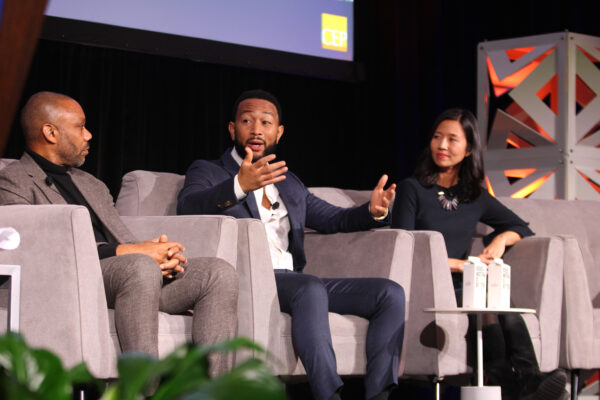The giving sector deserves credit for many things, but efficiency is not always one of them. For as long as there have been foundations investing in worthy causes, there have also been critics rightfully pointing out the duplicative, even wasteful ways with which the business of grantmaking often gets done.
Fortunately, a partnership by two philanthropic support organizations is helping demonstrate the way network thinking can improve foundation efficiency and impact through strategic collaboration. The result? Better services to support grantmakers everywhere, cost savings for the participants, and an enhanced ability for philanthropy to tell its story using credible, timely data.
Our organization — the Forum of Regional Associations of Grantmakers, or “Forum Network” for short — is a philanthropic network made up of 34 regional philanthropic associations with a combined membership of more than 5,500 organizations. Together we comprise the largest network in American philanthropy. With deep regional roots and a broad nationwide reach, the Forum Network facilitates effective philanthropy that strengthens communities and improves lives throughout the United States.
We recently teamed up with the Foundation Center to think more closely about how our network’s regional expertise, leadership and connections, and the Foundation Center’s expertise in data collection and analysis could complement each other. What’s emerged has the potential to transform how foundation performance gets measured and shared.
For many years the Foundation Center has worked on a one-on-one basis with some 20 regional associations of grantmakers, helping each to collect impact data from the field and produce reports on the state of giving in their respective region. The data and information they generate is invaluable, of course. It provides the evidence foundations use to demonstrate the breadth and depth of their impact to policymakers and other stakeholders and to inform their own work.
But the way information typically gets collected is highly inefficient, often expensive, and always time-consuming. One reason is because the Foundation Center has had to build and manage relationships with regional associations one-by-one. Each time a new data-gathering effort would begin, the terms, criteria, reporting methods, and collection systems would vary. There was rarely consistency between one regional association’s data and the next, or agreement on what should be counted and why.
A recent experience in Oregon, however, presents an alternative worth considering.
In late 2013, Oregon’s Governor and Portland’s Mayor jointly asked who was benefitting from philanthropy in their state. The Foundation Center had one dataset of all grants made in Oregon above $10,000, but the list painted only a partial picture. It failed to account for millions in smaller grants, including many investments from tribal philanthropy.
With guidance from the Forum Network, Grantmakers of Oregon and Southwest Washington (GOSW) quickly went to work educating its members on the importance of collecting more thorough and accurate data. Their members responded as needed, supplementing the Foundation Center’s strong, but incomplete, numbers and filling in the gaps. The report that emerged showed precisely where Oregon’s philanthropic resources were flowing, and how those dollars benefited diverse populations important to the policy decisions of the day.
Without GOSW and Foundation Center working together — a connection made stronger through their mutual ties to the Forum Network — the project never would have happened so quickly. It would have taken years, not months, to gather the data, and an important opportunity for educating the Mayor and Governor in a timely manner would have been lost.
Through the Forum Network’s new strategic partnership with the Foundation Center, our goal is to replicate Oregon’s experience across the country. Instead of the Foundation Center engaging in separate agreements and negotiations with each regional association, it will now work with the Forum to engage with all the regional associations through a single agreement. The result will be a vast improvement in how foundation data are gathered and reported across the country, sophisticated new tools that regional associations can use with their members to map and report on grantmaking in their regions, and greater efficiencies for both the Foundation Center and the Forum Network.
The Forum Network is achieving efficiencies and improving impact for the philanthropic sector in many other ways, as well. Over the past two years, for example, several regional associations have collaborated to jointly develop a new website framework that has saved time and money and allowed for a streamlined sharing of online resources and expertise. And the Forum’s PolicyWorks for Philanthropy Initiative has pooled resources to vastly improve regional associations’ collective public policy capacity.
Our partnership illustrates a cultural change that is taking place in philanthropy, one with the power to transform siloed thinking and old ways of doing business into a more streamlined, logical, and effective system for grantmaker support. The Forum Network has been an early adopter of this approach and over the past five years we have been learning how effective networks such as ours can increase foundation impact. The Oregon experience sheds light on why it is more important than ever for grantmakers to work together efficiently and for those who support them to combine their competencies.
The Forum Network is not the only entity working in this way, of course. There are many similar experiments across the giving sector testing the bounds of shared learning and selective collaboration. But this is not an academic exercise; it is a living, breathing example of network theory in practice, one that can help grantmakers everywhere make better decisions for deeper impact and increased efficiency across the field.
This post is part of an occasional series on the CEP Blog providing perspectives from regional grantmaking associations on philanthropy and foundation effectiveness.
Dave Biemesderfer is the board chair for the Forum of Regional Associations of Grantmakers and the president & CEO of the Florida Philanthropic Network. Follow him on Twitter at @DBiemesderfer.



